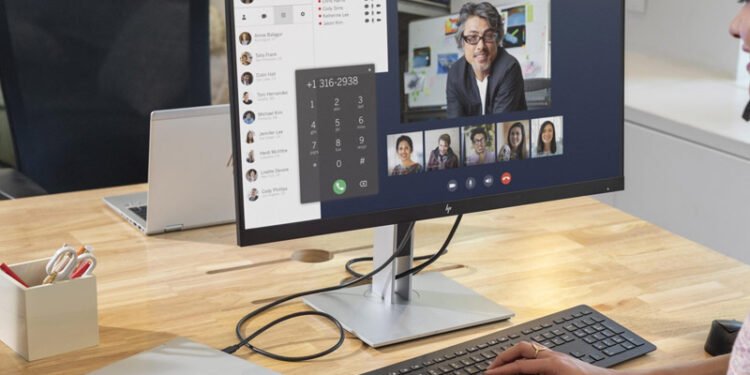Key Takeaways
- Discover practical tools and tips to boost your PC performance and daily productivity.
- Learn how to utilize your computer more efficiently for work and leisure.
- Find resources and guides to help optimize your PC setup.
Introduction
In today’s digital age, the efficiency of your PC usage can significantly impact your productivity and workflow. Whether you’re using a computer for professional tasks, creative projects, or everyday leisure activities, optimizing your PC experience is crucial. Creating an environment that is tailored for productivity can transform the way you interact with your computer on a daily basis. For instance, the Shift Browser exemplifies how specialized tools can enhance your online activity’s flow, similar to the benefits of organizing your desktop. Here, we’ll explore several practical tips and tools to help you achieve a more seamless and efficient computer experience.
The Importance of a Streamlined Desktop
A cluttered desktop can be a constant source of distraction and a significant barrier to efficient work. With icons scattered across your screen, hunting for files, applications, or fleeting thoughts can disturb your momentum. However, a well-organized desktop acts as a neutral, calming environment that mitigates stress and boosts your workflow efficiency. Implementing strategic changes can turn your computer interface into a functional space that enhances productivity.
Using Folders and Tags
Folders and tags are fundamental in organizing your digital workspace. They provide a clear structure and streamline your workflow by cutting down the time spent searching for files. You can locate files almost instantly by categorizing documents into relevant folders and employing a consistent tagging system. This practice is especially useful in project management and for sorting large amounts of data.
Desktop Customizations
Beyond organizing files, desktop customization plays a vital role in improving your interface aesthetics and functionality. The right choice of themes and widget arrangements contributes not just to the appeal of your desktop but also to its usability. Opt for minimalist designs that avoid clutter, with widgets displaying essential information like your calendar, emails, or task lists right at your fingertips. The goal is to make your desktop your personal command center where efficiency meets visual harmony.
Maximizing Browser Efficiency
Your browser holds the key to smoother navigation through digital landscapes, serving as the primary platform for accessing the internet. Efficient browser use can save you time and enhance your productivity. By incorporating tools and practices designed for efficiency, you can dramatically improve your browsing experience.
Powerful Extensions and Add-Ons
Browser extensions and add-ons play a pivotal role in customizing your browsing experience. These tools extend the capabilities of your browser from managing tasks to blocking ads, thereby improving your online experience. For instance, extensions that consolidate communication tools or manage bookmarks effectively can streamline your day-to-day tasks, leaving you more time to focus on what matters.
Keyboard Shortcuts for Browsers
Utilizing keyboard shortcuts is another simple yet powerful method to increase your browsing efficiency. These shortcuts can significantly cut down the time spent navigating through various browser functions. Common shortcuts like Ctrl + T for new tabs or Ctrl + Shift + T to restore closed tabs can become second nature, tremendously enhancing your browser navigation’s speed and fluidity.
Boosting PC Performance
System performance bottlenecks—whether due to resource-heavy applications, outdated software, or minimal storage space—can severely impede productivity. Identifying and addressing these can improve your computer’s speed and efficiency, thus making your work experience smoother and more enjoyable.
Regular System Maintenance
Regular maintenance not only smoothens your PC’s operation but also prolongs its lifespan. Activities such as cleaning out temporary files, updating software and drivers, and performing routine data backups are fundamental. These practices keep your system running optimally while protecting your valuable data from potential loss or damage.
Utilizing Performance Monitoring Tools
Performance monitoring tools are invaluable resources that help you understand and manage your PC’s resource allocation. These tools offer insights into memory usage, CPU load, and system temperature, enabling you to identify and manage programs that excessively deplete your system’s resources. Addressing these concerns ensures that your PC remains fast and responsive.
Optimizing Work Setup
Setting up the perfect work environment can significantly influence both your productivity and comfort levels. The proper setup should facilitate your workflow and reduce any physical strain, making your work sessions more effective and less taxing on your body.
Proper Accessories and Ergonomics
Investing in ergonomic accessories like an adjustable chair, a supportive keyboard, and a precision mouse can revolutionize your workspace. These tools help to maintain a healthy posture, reducing strain and discomfort during extended working periods. Adjusting your monitor to eye level can further help prevent neck strains, thus creating a more comfortable working environment.
Multi-Monitor Setup
For many, the demand for multitasking necessitates a more dynamic setup, often achieved through a multi-monitor configuration. Expanding your desktop across multiple screens allows for simultaneous visibility of multiple applications, facilitating better workflow management and multitasking abilities. This setup is especially beneficial for tasks requiring ample screen real estate, such as data analysis or design work.
Tips for Secure PC Usage
Security is an indispensable aspect of modern computing, and safeguarding your digital life is more vital than ever. Implementing basic security measures can protect both your personal and professional information from potential threats.
Antivirus Software and Firewalls
Antivirus software acts as the first line of defense against malware, ransomware, and other cyber threats. Keeping your antivirus updated and ensuring your firewalls are active are essential practices that protect your system from unauthorized access and data breaches.
Safe Browsing Practices
Engaging in safe browsing practices further secures your online interactions. Be vigilant about phishing attempts, ensure websites are secure protocol, and manage your passwords with a reliable password manager to prevent unauthorized access to your accounts.












